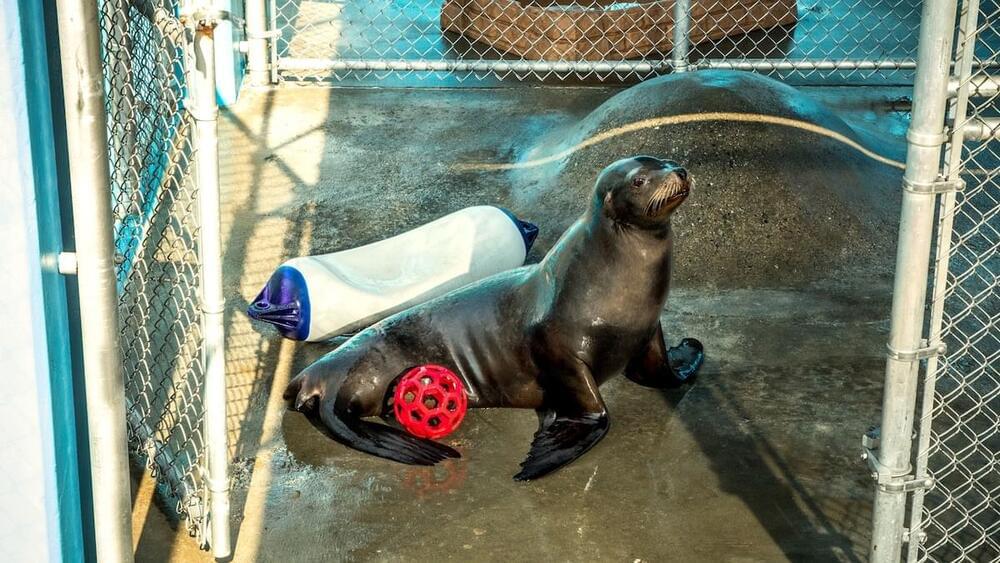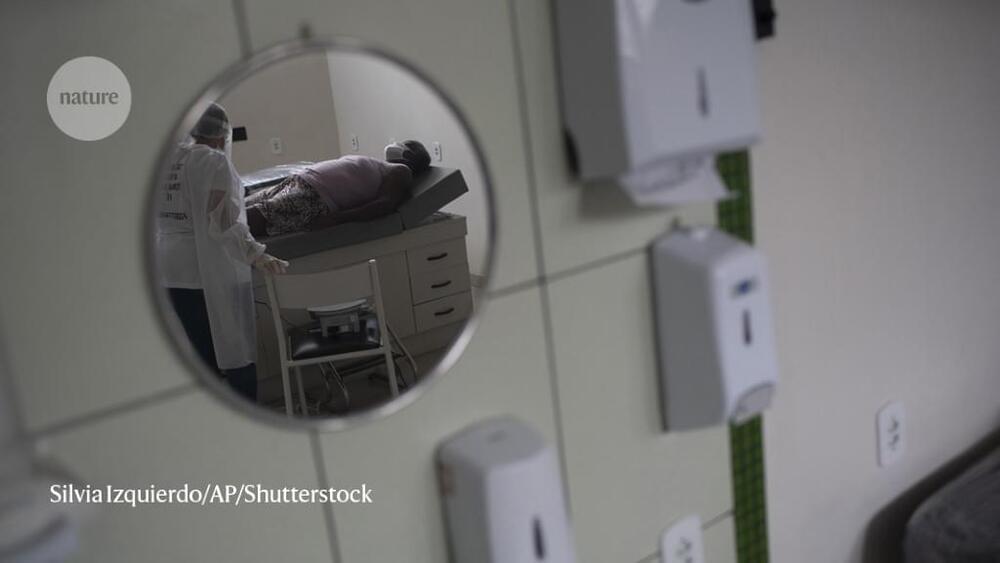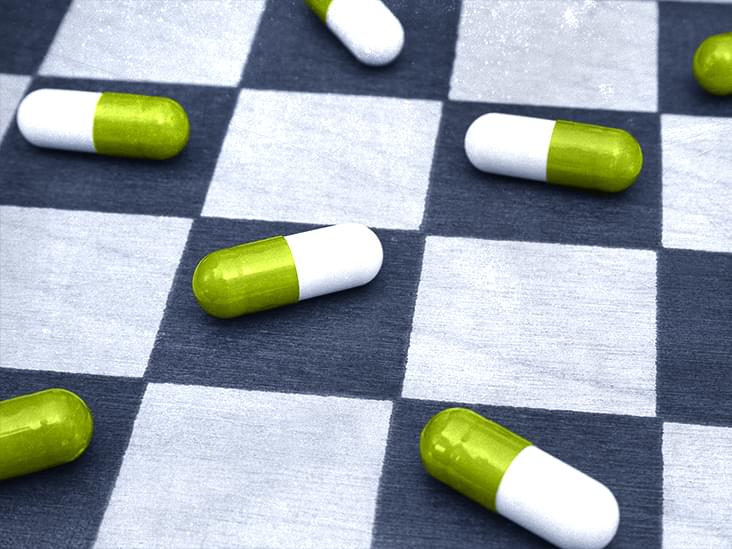The transplant in an animal named Cronutt points toward a new strategy to treat the disease. But many questions remain.



Of course, a minimum level of fidelity is required, but what’s far more important is perceptual consistency. By this, I mean that all sensory signals (i.e. sight, sound, touch, and motion) feed a single mental model of the world within your brain. With augmented reality, this can be achieved with relatively low visual fidelity, as long as virtual elements are spatially and temporally registered to your surroundings in a convincing way. And because our sense of distance (i.e. depth perception) is relatively coarse, it’s not hard for this to be convincing.
But for virtual reality, providing a unified sensory model of the world is much harder. This might sound surprising because it’s far easier for VR hardware to provide high-fidelity visuals without lag or distortion. But unless you’re using elaborate and impractical hardware, your body will be sitting or standing still while most virtual experiences involve motion. This inconsistency forces your brain to build and maintain two separate models of your world — one for your real surroundings and one for the virtual world that is presented in your headset.
When I tell people this, they often push back, forgetting that regardless of what’s happening in their headset, their brain still maintains a model of their body sitting on their chair, facing a particular direction in a particular room, with their feet touching the floor (etc.). Because of this perceptual inconsistency, your brain is forced to maintain two mental models. There are ways to reduce the effect, but it’s only when you merge real and virtual worlds into a single consistent experience (i.e. foster a unified mental model) that this truly gets solved.

A cheap, widely available drug used to treat mental illness cuts both the risk of death from COVID-19 and the need for people with the disease to receive intensive medical care, according to clinical-trial results1. The drug, called fluvoxamine, is taken for conditions including depression and obsessive-compulsive disorder. But it is also known to dampen immune responses and temper tissue damage, and researchers credit these properties with its success in the recent trial. Among study participants who took the drug as directed and did so in the early stages of the disease, COVID-19-related deaths fell by roughly 90% and the need for intensive COVID-19-related medical care fell by roughly 65%.
Study co-author Angela Reiersen, a psychiatrist at Washington University School of Medicine in St Louis, Missouri, has long been interested in using fluvoxamine to treat a rare genetic condition. While monitoring the fluvoxamine literature before the pandemic, she came across a 2019 study showing that fluvoxamine reduced inflammation in mice with sepsis2. When COVID-19 hit, “I immediately thought back to that paper with the mice,” she says.
Reiersen and her colleagues partnered with the organizers of the TOGETHER Trial, which aims to identify approved drugs that can be repurposed to treat COVID-19. The team’s study included 1,497 people in Brazil who had COVID-19 and were at high risk of severe disease. Roughly half received fluvoxamine, and the rest received a placebo.
The trial’s results, published on 27 October, mean that fluvoxamine is one of a handful of therapies that show strong evidence of preventing progression from mild to severe COVID-19. The only early-stage treatments currently recommended by the US National Institutes of Health are monoclonal antibodies, which are costly and difficult to administer in an outpatient setting.

If you had a few hundred experiments to manage during your days in space, how would you blow off steam in your spare time?
A badminton match was the activity of choice for International Space Station astronauts and spaceflight participants during the holidays. You can catch a short video of the activities of several crew members of Expedition 66 below; make sure to rotate it so you can watch the crew members working in 360 degrees.
The module they are using is the Japanese Kibo module, which is a common location for crews to conduct press conferences. The Kibo module also has a little more space for physical activities than some of the other ones, especially since there are no laptops or delicate experiments crowding the walls.
Space agencies around the world ask their astronauts to exercise for about 90 minutes to two hours a day, which does everything from keeping their bones and muscles secure for Earth living again, to providing mental well-being.
While the match was all in good fun, professional astronauts have a long-term goal of studying medicine on the International Space Station, both to prepare for long-duration missions to the moon and also to help seniors on Earth.
Full Story:

Summary: Researchers have identified a novel biomarker for depression and antidepressant response. The biomarker can be identified and monitored through blood samples.
Source: University of Illinois.
Researchers are one step closer to developing a blood test that provides a simple biochemical hallmark for depression and reveals the efficacy of drug therapy in individual patients.



Decisions, decisions. All of us are constantly faced with conscious and unconscious choices. Not just about what to wear, what to eat or how to spend a weekend, but about which hand to use when picking up a pencil, or whether to shift our weight in a chair. To make even trivial decisions, our brains sift through a pile of “what ifs” and weigh the hypotheticals. Even for choices that seem automatic—jumping out of the way of a speeding car, for instance—the brain can very quickly extrapolate from past experiences to make predictions and guide behavior.
In a paper published in January 2020, in Cell, a team of researchers in California peered into the brains of rats on the cusp of making a decision and watched their neurons rapidly play out the competing choices available to them. The mechanism they described might underlie not just decision-making, but also animals’ ability to envision more abstract possibilities—something akin to imagination.
The group, led by the neuroscientist Loren Frank of the University of California, San Francisco, investigated the activity of cells in the hippocampus, the seahorse-shaped brain region known to play crucial roles both in navigation and in the storage and retrieval of memories. They gave extra attention to neurons called place cells, nicknamed “the brain’s GPS” because they mentally map an animal’s location as it moves through space.
We’re in a golden age of merging AI and neuroscience. No longer tied to conventional publication venues with year-long turnaround times, our field is moving at record speed. As 2021 draws to a close, I wanted to take some time to zoom out and review a recent trend in neuro-AI, the move toward unsupervised learning to explain representations in different brain areasfootnote.
One of the most robust findings in neuro-AI is that artificial neural networks trained to perform ecologically relevant tasks match single neurons and ensemble signals in the brain. The canonical example is the ventral stream, where DNNs trained for object recognition on ImageNet match representations in IT (Khaligh-Razavi & Kriegeskorte, 2014, Yamins et al. 2014). Supervised, task-optimized networks link two important forms of explanation: ecological relevance and accounting for neural activity. They answer the teleological question: what is a brain region for?
However, as Jess Thompson points out, these are far from the only forms of explanation. In particular, task-optimized networks are generally not considered biologically plausible. Conventional ImageNet training uses 1M images. For a human infant to get this level of supervision, they would have to receive a new supervised label every 5 seconds (e.g. the parent points at a duck and says “duck”) for 3 hours a day, for more than a year. And for a non-human primate or a mouse? Thus, the search for biologically plausible networks which match the human brain is still on.
Our bodies have some healing and regenerative capabilities. For most of us, cuts will mend, we’ll recover from mild infections, and at the cellular level, | Genetics And Genomics.
The leading scientific social networking website and producer of educational virtual events and webinars.